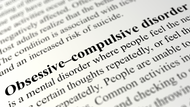How to Know if Your Child Has OCD?
25th Nov 2024
Obsessive Compulsive Disorder (OCD) is a mental health condition that affects people of all ages, including children. Recognising OCD in children can be challenging, as it often manifests differently than in adults. Understanding the signs and knowing when to seek help from a mental health professional is crucial for early intervention and effective treatment.
OCD in Children
Obsessive Compulsive Disorder in children involves a pattern of unwanted thoughts and repetitive behaviours. Many children have routines or rituals, but when these actions become compulsive and interfere with daily life, it may indicate obsessive compulsive disorder.
Common Behaviours in Children with OCD:
- Repetitive Actions: Washing hands excessively, repeating actions a certain way, or needing items arranged precisely.
- Unwanted Thoughts: Persistent worries about germs, bad things happening, or something being wrong.
- Rituals: Engaging in specific routines, called obsessions, to prevent bad things from happening.
Children might not understand why they feel compelled to perform these behaviours, and they may struggle to explain their worries.

Understanding Obsessive Compulsive Disorder
Obsessive compulsive disorder is characterised by obsessions and compulsions. Obsessions are unwanted, intrusive thoughts or images that cause significant anxiety. Compulsions are repetitive behaviours or mental acts performed to reduce the anxiety caused by obsessions.
Obsessions:
- Bad Thoughts: Fear of germs, contamination, or bad things happening to loved ones.
- Negative Thoughts: Worries about causing harm or making mistakes.
- Unwanted Thoughts: Disturbing images or ideas that are hard to control.
Compulsions:
- Repeating Actions: Checking doors, locks, or appliances multiple times.
- Washing Hands: Excessive handwashing to prevent feeling sick or contaminated.
- Repeating Words: Silently or aloud repeating words to neutralise bad thoughts.
These obsessions and compulsions can consume a significant amount of time and cause distress, affecting the child's ability to function at school and home.
Recognising the Signs and OCD Symptoms
Identifying OCD symptoms early can help parents seek appropriate help. Here are some signs that may indicate your child is struggling with OCD:
Behavioural Signs:
- Avoidance of Certain Situations: Refusing to touch objects or go places due to fear.
- Excessive Worry: Constantly seeking reassurance about fears or worries.
- Time-Consuming Rituals: Spending a lot of time on routines, making them late for school or activities.
Emotional Signs:
- Anxiety: Appearing unusually anxious or stressed without clear reasons.
- Fear: Intense fears that seem irrational or excessive.
- Depression: Signs of sadness, withdrawal from friends or activities they once enjoyed.
Physical Signs:
- Sick Feelings: Complaints about feeling sick with no medical cause.
- Stress-Related Symptoms: Headaches, stomach aches, or fatigue due to stress.
If you notice these OCD symptoms persisting, it may be time to consult a mental health professional.

When to Consult a Mental Health Provider
A mental health professional can provide a proper Obsessive Compulsive Disorder (OCD) diagnosis and recommend effective treatment. Early intervention can significantly improve your child's progress and quality of life.
Steps to Take:
- Talk to Your Child's Doctor: Start by discussing your concerns with your child's pediatrician. They can rule out any medical conditions and refer you to a mental health provider.
- Seek a Mental Health Specialist: A specialist in children's mental health conditions can evaluate your child. They might use interviews and assessments to diagnose OCD.
- Understand the Diagnosis: A clear understanding of the diagnosis helps in planning the appropriate treatment and setting expectations.
Benefits of Mental Health Professional Help:
- Accurate Diagnosis: Differentiating OCD from an anxiety disorder or any other mental health condition.
- Tailored Treatment Plan: Creating a plan that suits your child's specific needs.
- Support for Families: Providing guidance for parents and siblings to cope and support the child.
Supporting Your Child with Mental Health Conditions
Treatment for children with Obsessive Compulsive Disorder (OCD) often involves a combination of therapy and, in some cases, medication. The goal is to help the child manage symptoms and reduce the impact on their daily life.
Cognitive Behavioral Therapy (CBT):
- Exposure and Response Prevention: A form of CBT where the child is gradually exposed to feared situations in a safe setting and learns to resist the urge to perform compulsions.
- Child's Therapy Sessions: Regular meetings with a therapist to develop coping strategies.
- Child's Progress Monitoring: Tracking improvements and adjusting the treatment as needed.
Parental Support:
- Education: Learning about OCD to understand what your child is experiencing.
- Communication: Openly discussing fears and worries without judgement.
- Reassurance: Providing comfort while encouraging your child to face their fears.

Self Care and Coping Strategies:
- Stress Management: Encouraging activities that reduce stress, such as exercise or hobbies.
- Healthy Routine: Maintaining regular sleep patterns and a balanced diet.
- Support Networks: Connecting with other parents and families facing similar challenges.
School Involvement:
- Informing Teachers: Working with the school to accommodate your child's needs.
- Creating a Supportive Environment: Ensuring that your child feels safe and understood at school.
Key Takeaway
Recognising OCD in children is the first step towards helping them manage this challenging condition. If your child is exhibiting signs of obsessive compulsive disorder, such as persistent unwanted thoughts and repetitive behaviours, it's important to consult a mental health professional.
With proper diagnosis and treatment, including cognitive behavioral therapy, children can learn to control their symptoms and improve their quality of life.
Remember, you're not alone. Many children and families navigate OCD successfully with the right support and resources. Early intervention and ongoing support can make a significant difference in your child's journey toward wellness.



